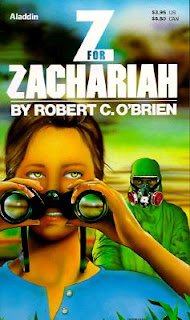The Icarus Aftermath Review
With their best captain gone, Talos steps up to lead the Rebellion’s fighters. First objective: take out the Labyrinth. Only problem? No one can find its key.
Koralia thinks she can find it, or at least an alternative. She didn’t count on uncovering secrets that could rock the galaxy to its core. Now she’s rushing to find a solution before everything blows up in their face.
If they don’t destroy the Labyrinth soon, the Rebellion, the planets they protect, and an entire race of people are all doomed.
Greek Mythology meets Star Wars in this retelling of the Minotaur and the Labyrinth.
I remember seeing Arielle post hints and snippets of this book last year when she first began writing it. I loved the concept (Greek myths AND Star Wars? It was meant to be.) and couldn't wait to get my hands on the finished product.
Here we are almost a year later and we have just that.
Okay, okay, you say. But is it good?
"Is it good?"
No. It's amazing.
No. It's amazing.
First off, it has a cast of characters who jump off the page. Their interactions, relationships, and secrets (everybody needs secrets in a book like this) all stem from the way real people behave. Their hopes, dreams, and fears make you want to pull them onto your couch and offer them cocoa (or a safe place to spar in some cases). The love that exists between the Sunfire pilots is tremendous, and it's refreshing to see men and women treating each other as equals, as friends, as family, without it feeling forced or half-hearted.
Second, the way Arielle blends mythical figures into a science-fiction universe is wonderful. Yes, you have larger-than-life olympians who possess super-human abilities, but you also have their children who are stuck with powers that make relating to other people not just difficult but darn near impossible. And even though the olympians are big and bold, they still have day jobs. Athina is a lawyer. Ares is a military commander. Hephaestus makes things. Shiny things. Exploding things. All the things.
Third, and for me probably the most important, it has heart. It has hope. This is a story that would fall flat if its characters didn't feel real in their sorrow, their love, their very human needs for companionship, success, and belonging. Koralia's journey into the Rebellion is sure to drag readers along with her. Talos' learning to trust could help us all open up. Mikon's lesson on anchoring oneself in the moment, in cherishing the good relationships, is one we all need to learn. Despite being a story knit from the loss of a loved one, this book propels its characters and its readers onward. There is hope for love after heartbreak, for family (biological or adoptive) after abuse, for purpose after disaster.
We always need hope. We always need to come back to the center. And The Icarus Aftermath helps us do just that--with the added benefit of spaceship battles and snarky Amazons.
You can find The Icarus Aftermath here on Goodreads and here on Amazon.
You can find The Icarus Aftermath here on Goodreads and here on Amazon.
Arielle Bailey taught herself to read at age four, and words have been her primary passion ever since. In her day job, she edits other people’s books and writes blog posts analyzing TV shows and movies. The rest of the time, she brainstorms, plots, and writes her own books. At night, you can usually find her outside, staring at the moon and stars.
Her favorite genres to read and write include contemporary fantasy, court intrigue, and space fantasy—because what is better than fantasy among the stars?
To learn more about her fiction (and that of her writing buddies), sign up for the Citadel Fiction newsletter: https://www.subscribepage.com/b1h5v9
You can follow Arielle's blog and social media at the following links:





Comments
Post a Comment
What do you think?